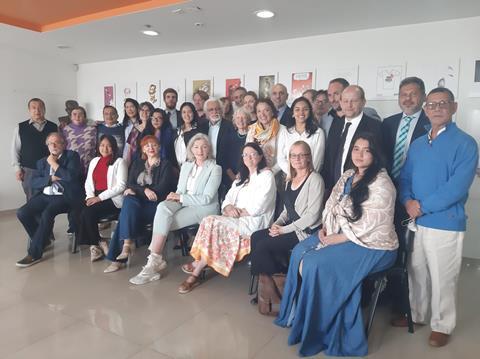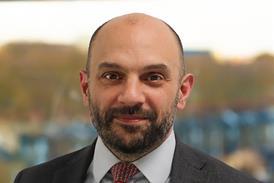A UK charity that works to promote access to justice and uphold the rule of law in Colombia has described the worsening perils facing 'defenders of the defenders' following its latest visit to the country.
The Colombia Caravana’s latest report is based on findings of a visit in August 2022. The 124-page report, which will be presented throughout the year, details what it says is the intensification of violence against lawyers and human rights defenders. The Caravana is petitioning to have the International Criminal Court reopen a preliminary examination of Colombia.

The Caravana concludes that ‘not only has the situation of the judicial branch and impunity not improved since 2018, it has worsened’.
The report expresses ‘dismay by the lack of progress’ in implementing key commitments of the country's 2016 peace agreement, along with the ‘continuity and intensification of the violence, armed conflict and human rights violations’.
‘In all regions visited, Caravana delegates heard testimonies of cases of stigmatisation, judicial set-ups and criminalisation, and threats and attacks against lawyers (sometimes, their families), and their clients,' the report states. 'The situation for the "defenders of the defenders" continues to be untenable.’
It adds: ‘There are reports of the continued killing of signatories to the Peach Agreement, FARC [guerrilla group Fuerzas Armadas Revolucionarias de Colombia] ex-combatants, and the emergence and operation of FARC dissident groups.
‘Social leaders and HRDs remain at high risk and unprotected; Colombia is the most dangerous place to be a social leader, HRD or environmental defender: more than half of the world’s murders of HRDs take place in Colombia.
‘This report…underlines the critical importance of a renewed commitment by the [Colombian] government to the full and effective implementation of the peace agreement.’
It adds: ‘Forms of persecution range from stigmatisation, threats, physical attacks and murders, internal displacement or exile and irregular disciplinary or criminal process and judicialization.’
Inadequate staffing, particularly among judges and prosecutors, contribute to the ‘system’s incapacity to function properly’. Delegates who visited Cartagena, in the north of the country, learned that judges ‘have to contend with a 200% increase’ in their caseloads.
The report states: ‘The Caravana heard reports of significant under-resourcing of judicial entities during meetings in Bogota and all of the regions visited. Delegates to Cucuta met with the prosecutor in charge of threats and human rights. He described his work situation; the extremely large number of cases (in the range of several thousand); not having had an assistant for over a year; and the overall lack of material, technical and human resources available to the office.’
However the report also says that ‘indications of change under the new government are evident’ and that there was ‘some optimism…in light of the new government…but more pessimistic assessments and scepticism about prospects for meaningful change in Colombia, both generally, and in terms of [lawyers’] ability to freely perform their professional labour’.
The delegation, made up of 18 legal professionals and human rights experts from the UK, Canada, France, Italy, Mexico, the Netherlands, Nicaragua, Spain, Switzerland, Trinidad and Tobago and the United States, travelled to Colombia just weeks after the inauguration of President Gustavo Petro’s government.
It said that ‘continued international monitoring and accompaniment of Colombia will be vital going forward given the complex and intractable nature of the challenges that lie ahead’.



























1 Reader's comment